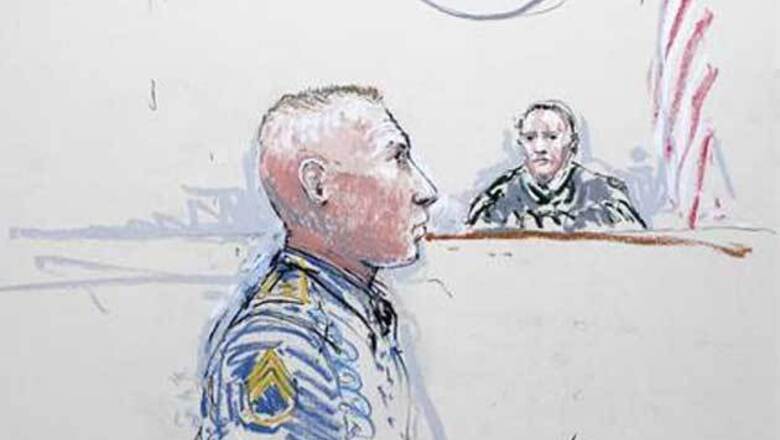
views
A decorated US soldier who gunned down 16 unarmed Afghan civilians in a night time rampage in 2012 apologized on Thursday at a sentencing hearing to determine his fate, calling the killings "an act of cowardice."
Army Staff Sergeant Robert Bales, a veteran of four combat tours in Iraq and Afghanistan, has admitted to shooting the villagers, mostly women and children, in attacks on their family compounds in Kandahar province in March 2012.
"I am truly, truly sorry to all the people whose family members I have taken away. I have murdered their families," Bales told a jury in a military courtroom in Washington state, choking up at times. "What I did is an act of cowardice."
Bales pleaded guilty to the killings in June in a deal that will spare him the death penalty. A jury of six military personnel will ultimately decide if he will spend the rest of his natural life in prison or be eligible for parole after 20 years. Closing arguments are due on Friday.
Defense lawyers have been seeking to show that Bales suffered a breakdown under the pressure of his final deployment to Afghanistan. They have argued that he suffered from post traumatic stress disorder and a brain injury even before his last deployment to Afghanistan.
"I don't think anybody with a rational mind could say Bob Bales didn't snap," Browne told reporters on Wednesday after the court-martial session before a military jury.
Army prosecutors have said Bales acted alone and with premeditation when, armed with a pistol, a rifle and a grenade launcher, he left his base twice during the night, returning in the middle of his rampage to tell a fellow soldier, "I just shot up some people."
The killings marked the worst case of civilian deaths blamed on a U.S. soldier since the Vietnam War and further eroded strained US-Afghan relations after more than a decade of conflict in that country.
Speaking slowly and deliberately, Bales told the jury he had struggled with anger issues that worsened after his third military deployment.
He said trivial issues like dirty dishes in the sink would make him angry, and that he was "mad at myself for being mad." He briefly sought treatment between his third and fourth deployments, but felt it was not working and stopped.
"I was a coward for stopping. If you have a problem and you seek help, it's not weakness, it's strength," he said. Under military court rules, he was not subject to cross examination.
Prosecutors had said they hoped to show that Bales had a pattern of bad behavior that predated his deployments to Iraq and Afghanistan.
The prosecution rested its case on Wednesday after calling witnesses that included nine Afghans who had been flown to the United States to testify, among them a man who lost six of his seven children and other members of his family. Army spokeswoman Major Allison Aguilar said those witnesses had been given the opportunity to be in the courtroom but they were not present for Bales' statement.
"I hope that the people that traveled so far to come here, I hope they translate this so I can tell them I'm sorry. If I could bring their family members back, I would in a heartbeat. I can't comprehend their loss. I think about it every time I look at my kids," Bales said.
A father of two, Bales also apologized to his military colleagues, fighting back tears as he spoke.
"I love the Army. I stood next to some really good guys, some real heroes," he said. "I can't say I'm sorry to those guys enough."
Bales, who has claimed his memory of the killings is spotty, acknowledged them upon pleading guilty in June and told the court at that time there was "not a good reason in this world" for his actions.
During a nine-day pre-trial hearing last fall, witnesses testified that Bales had been upset by a bomb blast near his outpost that severed a fellow soldier's leg days before the shootings.




















Comments
0 comment